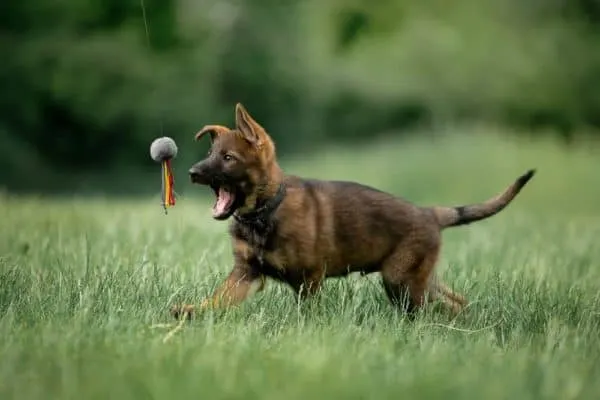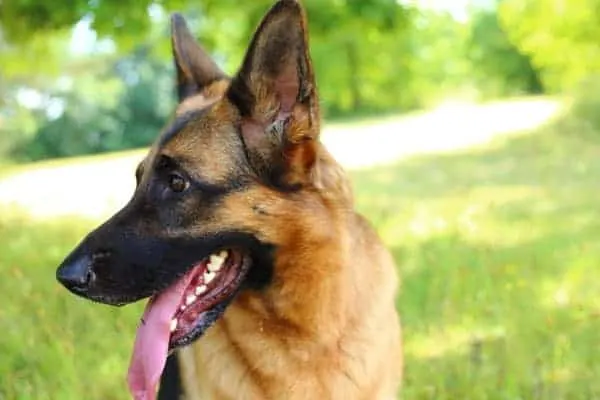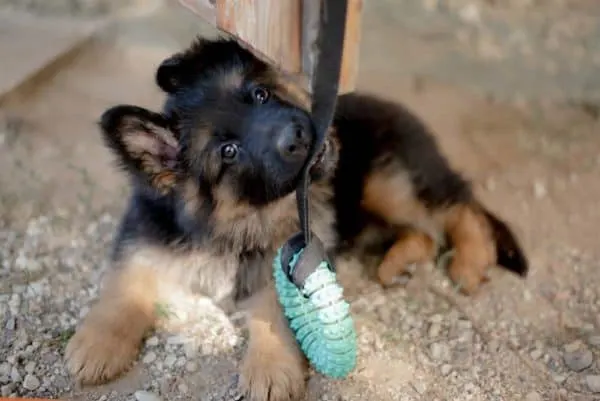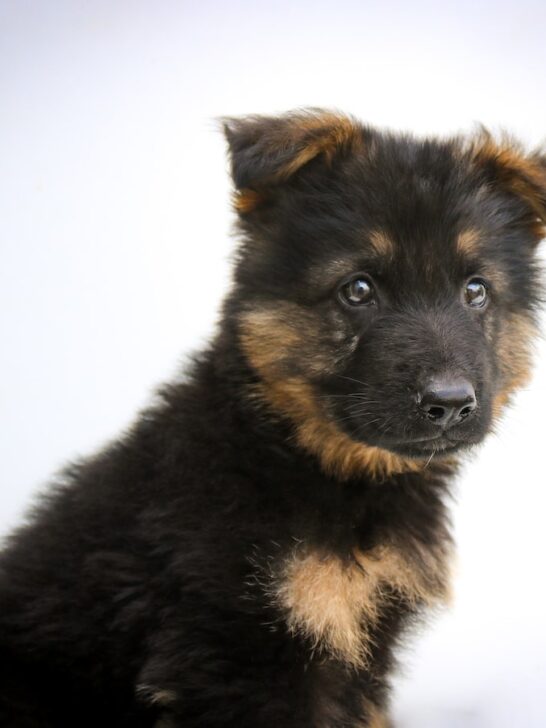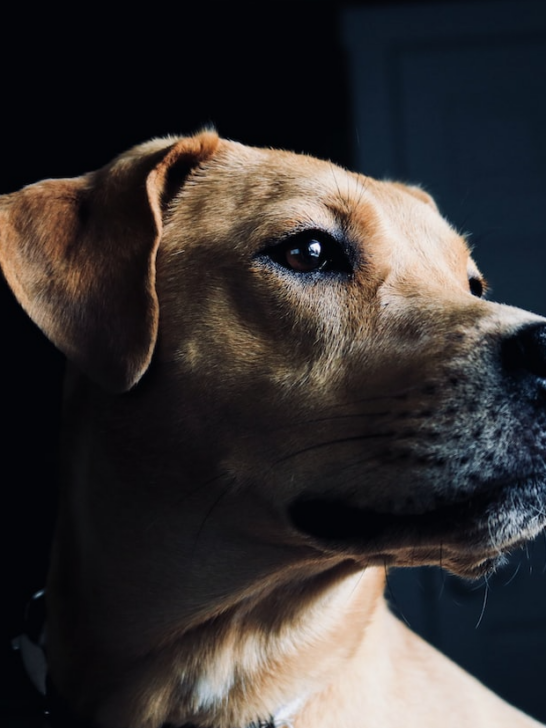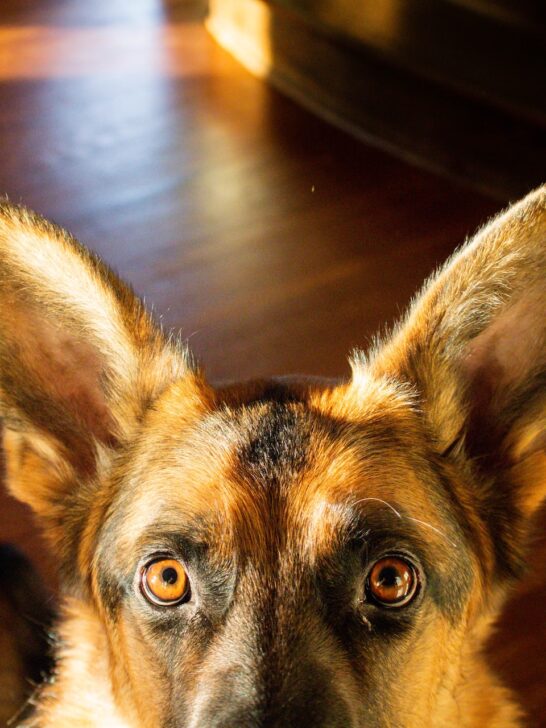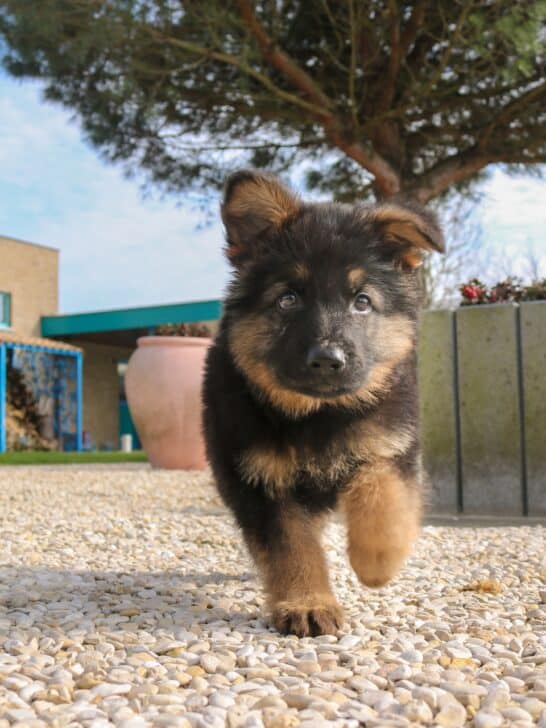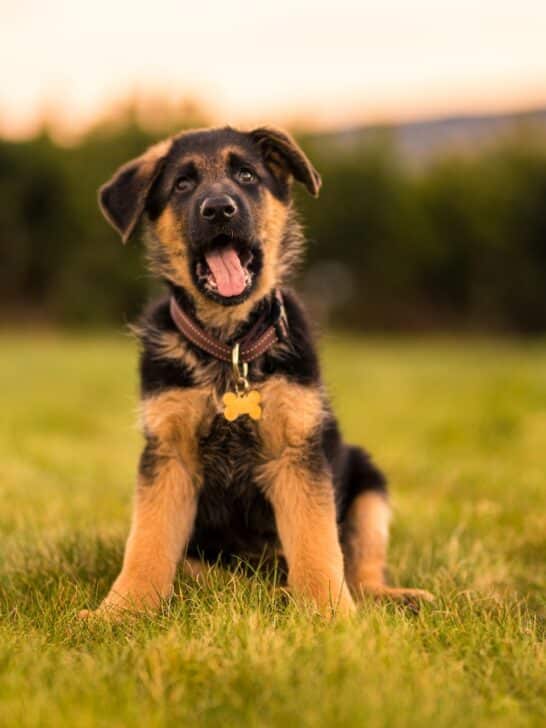When Do German Shepherds Lose Their Puppy Teeth?
German Shepherd puppies start losing their puppy teeth between six and eight weeks of age, to make room for the eventual adult teeth. Most Shepherd puppies will have had most of their adult teeth in by the time they are six months old.
What Are the Teething Stages German Shepherd Puppies Go Through?
It may seem like your German Shepherd puppy’s teething period lasts for an eternity. The good thing is, this period lasts for a relatively short period. You’ll be enjoying life with your dog minus the most destructive chewing before you know it.
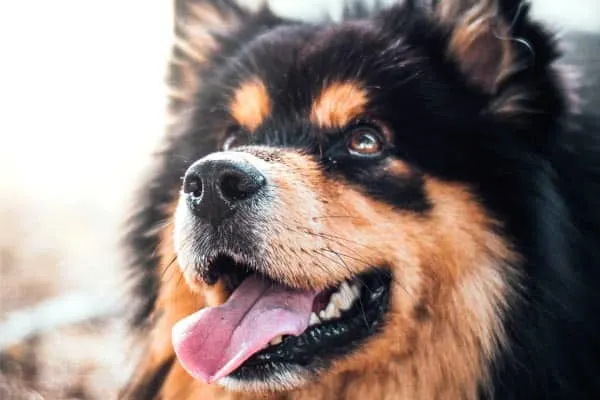
Dog Breeds List considers the teething process to start when the first baby teeth emerge, which will occur during the first month.
Even though puppies have no teeth at birth, they will have their baby teeth come in when they’re two to four weeks old. By six or seven weeks, you can expect your puppy to have 28 teeth instead of the 42 they will have as adults.
German Shepherd puppies will start to see adult teeth between six and eight weeks, as they begin to lose their baby teeth. This part of the teething stage is painful for puppies, with chewing being the primary form of seeking relief.
Sometimes the baby teeth will fall out, and you’ll find them around the house or yard. Your puppy might also swallow the baby teeth, which might seem unsettling at first. However, this is nothing to worry about because the teeth won’t harm your puppy.
All of the puppy’s adult teeth should be present at about six months. The teething process and all the pain puppies live with because of it will have ended by that time. When the adult teeth settle into the jawbone, your dog may experience some discomfort.
This video provides a look at what you might expect when your Shepherd puppy’s adult teeth start coming in. You will have a better idea of how big the adult teeth are from viewing this video.
Some dogs might still have adult teeth coming in until they’re eight months old. However, if your German Shepherd still has baby teeth after this stage, follow up with your vet about diagnosis and any possible extractions to make room for adult teeth.
Even though abnormalities with the jaws are rare in Shepherds, it is a good idea to check your dog’s mouth and make sure their teeth are coming in correctly. You’ll be able to alert your vet a lot sooner if you’re keeping an eye on everything.
During the time your puppy is teething, it’s essential for the dog to have the right type of stimulation. Without proper stimulation, your puppy’s teething stages will be harder on everyone involved, especially the dog trying to learn their place.
Can Exercise Help a Teething German Shepherd Puppy?
Jubilant Pups emphasizes the importance of giving a teething German Shepherd puppy sufficient exercise to help avoid needless destruction.
A useful rule of thumb for exercise is twice a day, with five minutes for each month of the puppy’s life. An example would be 15 minutes for a three-month-old puppy. Intervals of this length are sufficient for a puppy’s needs.
The advantage of twice-daily play sessions is making sure your puppy gets their exercise, without becoming too exhausted. You want your puppy calm, but not sick from overexertion.
Even though teething puppies will do a lot of chewing, sufficient exercise will help curb the worst behavior that puppies have to offer. Your puppy will be better-behaved overall, and less likely to chew inappropriately, which is always helpful.
Nervous energy is behind a lot of undesirable behaviors like nuisance chewing. The more exercise your puppy gets, the calmer he or she will be. A more relaxed puppy is less likely to take out their frustration through chewing and other unwanted behaviors.
The period between the puppy initially losing their baby teeth and getting adult teeth will be one of the most challenging times where behavior is concerned. Be sure to use a lot of patience with your puppy during this time as they adjust.
Once your puppy has reached the age where adult teeth are settling in, they are a perfect age to start learning how to play fetch. Your yard or a dog park are both ideal places for this type of activity because of increased room.
Playing fetch is a perfect way to bond with your German Shepherd puppy through play. Some of the benefits of fetch as an activity include increased stamina, endurance, and better-developed muscles. Your puppy will likely look forward to it.
Puppies and young dogs who get bored and don’t have an appropriate outlet for their frustration might be more likely to bite inappropriately. Even when German Shepherd Dogs still have puppy teeth, they can be very sharp and cause painful bites.
To help make everything easier for all involved, consider taking steps to make your puppy’s mouth as comfortable as possible. The more you ease the puppy’s mouth pain, the less they will try to cope with the pain through inappropriate chewing.
How Do You Ease a German Shepherd Puppy’s Discomfort from Teething?
The fortunate thing about having a GSD puppy going through teething is that there are several ways you can provide effective relief. One of the easiest is to wet down a clean towel, put it in the freezer until it is cold and let the puppy chew it.
However, make sure the towel doesn’t become frozen solid, as it can hurt your puppy’s teeth. Should the towel break apart, make sure your puppy doesn’t swallow the pieces. Otherwise, the pieces could end up lodged in the digestive tract, requiring surgery.
Adrienne Farricelli provides some insight into one common chewing-related issue, dogs chewing shoes. In short, the scents attract dogs.
Sweat and other scents will attract your dog’s attention. Because the smells are unfamiliar, the puppy will be likely to investigate by taste. A puppy chewing up an old shoe can be comical and somewhat cute.
However, a puppy cannot distinguish between an old shoe you’re not keeping and a pair of expensive shoes. Shoes can also have large pieces that present choking or other hazards, making them poor choices for chew toys.
When a German Shepherd Dog Puppy is teething, they may seem like a force of nature that you cannot control. However, keeping them from chewing the wrong things is crucial to their safety, not to mention your sanity!
An essential part of having a well-behaved young GSD is setting and enforcing proper boundaries with them. A dog that knows the rules and follows them will be a lot more fun for the whole family to enjoy spending time with.
What Should I Do If my German Shepherd Chews Something Inappropriate?
Even an otherwise well-behaved dog will chew things that they’re not supposed to sometimes. However, knowing how to address the behavior makes all the difference in ensuring that your German Shepherd Dog ceases their bad behavior.
According to Pooja Menon, punishment is not the way to correct bad behavior. Physical punishment and yelling should be avoided.
Catching the dog in the act is the key to making discipline work effectively. If you scold the dog after the fact, they will not understand why they got into trouble. Quick diversion with a more appropriate chew toy works better.
One of the advantages of using diversion as a technique is because it teaches the puppy what to do, instead of only showing them what not to do. Positive training methods have a more significant overall effect on your puppy.
Picking the right chew toys makes a difference in your puppy’s adjustment to their teething phases. After all, you want this phase in your dog’s life to go as smoothly for everyone as possible, especially for the puppy in question.
What is Most Helpful for a German Shepherd Puppy to Chew On?
One of the easiest things about finding appropriate chew toys for your GSD puppy is having a broad range of options that you can choose from. By having more than one type of toy, you can easily keep your puppy from becoming bored with what they have.
Anne Fritz highlights providing appropriate items for chewing as a major pet parent responsibility. Every dog has different needs to consider when getting toys.
One of the best remedies for your puppy’s teething needs could be sitting in your fridge at home. Cut up some baby carrots, then freeze them. Chewing on these carrots will soothe your puppy’s gums while providing some extra nutrients.
Flavored and treat-based toys provide a lot of fun for puppies. The treats or added flavors will help spark your dog’s interest. One of the best things about these types of toys is that they will keep your puppy busier for that much longer.
Puppy teething sticks have a rubber surface that helps soothe achy gums and teeth. Most of these sticks feature grooves that help clean teeth more effectively. The material is durable enough to withstand any chewer’s needs.
Sturdy toys with features like LED lights will help maintain your puppy’s attention for that much longer. Features like lights are often preferable to squeakers because they don’t present a part that the dog could end up trying to swallow.
You might also consider bones for your young German Shepherd to chew on. However, make sure you use beef marrow bones, instead of pork, chicken, or turkey bones. Non-beef bones can splinter too easily and cause serious injury.
Dental bones can also be helpful for your puppy. These bones help promote dental health, which is good to manage as early as possible in your dog. These bones are durable and also do not present the splintering hazard that other bones do.
One of the outcomes of using the right teething products should be having a puppy focused on something other than their mouth pain. The more controlled their mouth pain, the more your puppy can concentrate on obedience training.
Will Teething Impact a German Shepherd Puppy’s Training?
A common mistake that many people make is believing that training must be halted during the teething stages. According to Proud Dog Mom, puppies can and should be trained during this time.
One thing to keep in mind is that training, by itself, won’t put a stop to the more bothersome chewing behavior. However, training will give your puppy a needed diversion that will hopefully keep the worst under control.
Training at an early age is essential to making sure your German Shepherd knows how to behave. Even if you train the puppy during teething, they will understand what is and is not appropriate behavior. This is key to a well-adjusted puppy.
The age where a puppy is still teething is a perfect time to do crate training. One of the best things about crate training is that it is an excellent way to get them acclimated to their own sleeping space, helping you reach two goals at once.
If your German Shepherd is past normal teething stage but still chewing, anti-chew sprays can come in handy. These sprays will make whatever object the dog is chewing taste very unpleasant, allowing the sprays to serve as deterrents.
Will Understanding the Teething Stages Make Life with my GSD Easier?
Knowing when the various teething stages occur in a German Shepherd’s life will make it easier for you to get through this time. Even though it is a phase of relatively short duration, a teething puppy can leave a lot of destruction in their wake.
However, the more you know about the teething stages, the better you can help your puppy to adjust. When you know what to expect, you’ll be well-prepared to guide your puppy through this awkward part of the growing-up process.
Regardless of how frustrating it can be to live with a teething puppy, knowing when and how quickly they will go through the stages makes everything easier.














